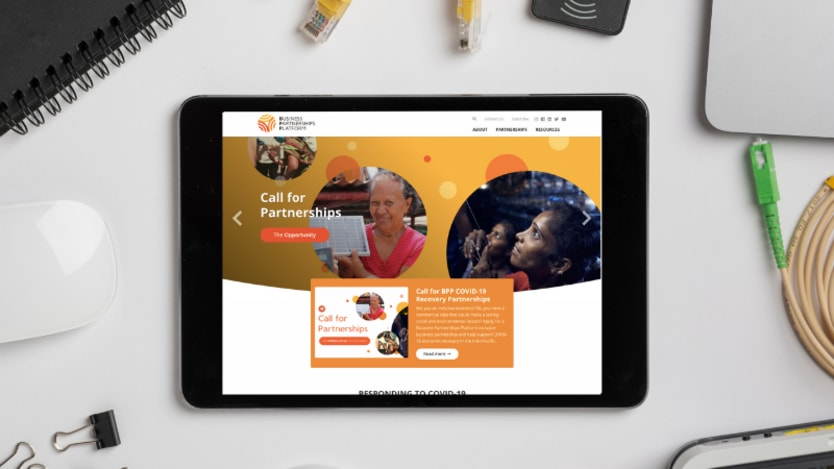
CANBERRA — Engagement with the private sector is an important part of the Australian aid program’s approach, which was initially established under former foreign minister Julie Bishop. The Business Partnerships Platform was announced in 2015 as part of this approach to encourage traditional development organizations, the private sector, and innovative thinkers to work together on developing new programs that can lead to sustainable development in the Indo-Pacific region and Southeast Asia.
A continuing chapter of this funding initiative begins this year until 2024. Four focus countries have been selected by the Department of Foreign Affairs and Trade — Fiji, Samoa, Sri Lanka, and Vietnam.
“These focus countries receive targeted support to help deepen private sector engagement and to maximize impact,” Ariane Gauchat, team leader for BPP with Palladium, told Devex. The first chapter of BPP, Gauchat said, delivered 33 partnerships which reached 5.5 million people and provided an estimated $51.3 million Australian dollars ($37.1 million) in additional income or increased savings.
We’ve lifted our paywall on all COVID-19 articles. Looking for more in-depth global development coverage? Please consider supporting our journalism with a Pro subscription.
But in response to COVID-19, a new Australian aid program has been developed, refocusing program priorities on health security, stability, and economic recovery in priority regions.
BPP’s new funding round, now open for applicants, aims to support these objectives.
Expanding beyond the initially planned geographic footprint, projects and partnerships supporting development outcomes in Bangladesh, Nepal, the Philippines, Samoa, Sri Lanka, Timor Leste, and Tonga is the focus of this new round of funding. A call for partnerships in Fiji and Vietnam will be launched in the coming months.
Regions will have specific sectoral focuses
In Samoa, BPP is seeking partnerships that have health security, stability, and economic recovery objectives.
“Inclusive businesses are invited to apply with partnerships that deliver development impacts and sustainable commercial outcomes to support COVID‑19 economic recovery in Samoa,” Gauchat said.
“COVID‑19 presents an opportunity for Samoan diaspora business owners, Australian, international, and local businesses in our partner countries to extend their interests in the region and diversify regional supply chains.”
But others will be more focused on their objectives.
“For Sri Lanka, the call for partnerships focuses on the cross-cutting themes of women’s economic empowerment and support for the recovery of small and medium-sized businesses,” Gauchat said.
Interactive: What COVID-19 conspiracy theories mean for vaccine delivery
Disinformation surrounding COVID-19 creates a risk that any successful vaccine may be rejected by communities, or even face terrorist attacks. Are we doing enough to stop the threat?
“With these themes in mind, businesses are invited to submit ideas in four sectors — information and communications technology; agriculture technology and fisheries; online education and education technology; and financial inclusion.”
Proposals for Bangladesh, Nepal, the Philippines, Timor-Leste, and Tonga will again be different, focusing on cross-cutting themes of digitalization, skills development, economic opportunities for women, and green recovery. “These themes all represent areas where businesses can find growth opportunities and effectively contribute to building back better in these countries.”
The final number of and value of partnerships supported, Gauchat explained, will depend on the quality of applications received. But up to 20 partnerships could be supported.
How is the application process changing with COVID-19?
The core criteria for BPP applications used previously still apply, with proposals evaluated on commercial viability; social and environmental impact; gender equality and social inclusion; and value for money. But in reviewing applicants, Gauchat will also be assessed on “unique risks and opportunities of the COVID-19 context.
“In particular, how leveraging investment, networks, skills, and expertise through a cross-sector partnership approach can accelerate opportunities, add value and address impacts arising from COVID-19.”
The application process is also changing. It will now have a two-staged approach, with the first stage a streamlined concept note.
“This recognizes the real-time constraints faced by businesses, NGOs, embassies, and high commissions during COVID-19 and seeks to quickly narrow, through mutual discussions, to full proposals and select partnerships that best fit the BPP model and can deliver significant impact for COVID-19 economic recovery,” Gauchat said.
There is an understanding that flexibility may be required for project implementation under the new partnerships. But BPP’s adaptive model, which allows partners to collaborate and adapt their business models and social impact approaches, is well established to support that.
Remote support tools and platforms and local expertise may be utilized more in this round to help partnerships in delivering on goals.
“We would encourage applicants to be bold, and think creatively about where the BPP can support ideas that can contribute to COVID-19 economic recovery by achieving social and environmental impact through a commercially sustainable approach.”
— Ariane Gauchat, team leader of BPP, PalladiumRecommendations for applicants
Gauchat emphasized that supporting women and girls and addressing climate change impacts are important objectives for this BPP round. But creativity and passion are also needed.
“We are in a time of significant economic, social, and environmental challenges, as well as opportunities as a result of the impacts of the COVID-19 pandemic,” she said. “We would encourage applicants to be bold, and think creatively about where the BPP can support ideas that can contribute to COVID-19 economic recovery by achieving social and environmental impact through a commercially sustainable approach.”
The two-staged approach will enable concept notes to be submitted and discussed, with the hope of opening the funding to new aid program partners. “We encourage businesses and their partners to apply, even if they are not sure of the full role the Australian government can play within a partnership. Applicants will have the opportunity to discuss mutual interests to help shape proposals as they move forward,” Gauchat said.
Simply being a part of the process could open doors to the Australian aid program and the networking opportunities that could come with increased exposure.


